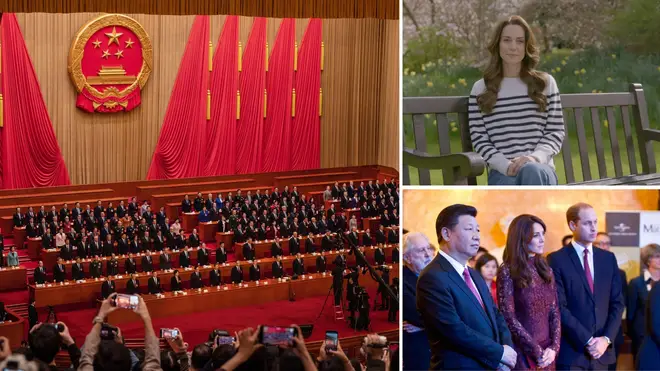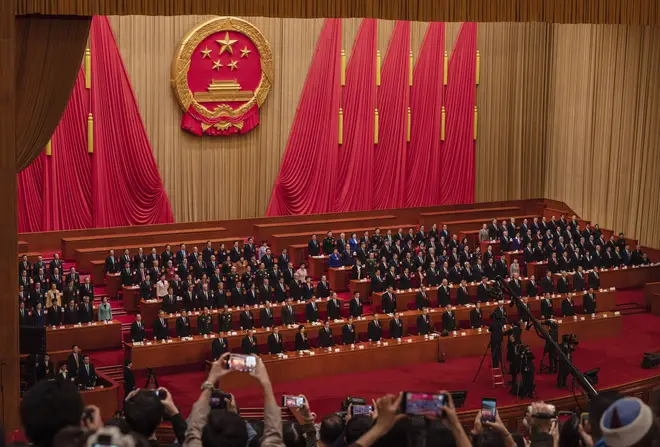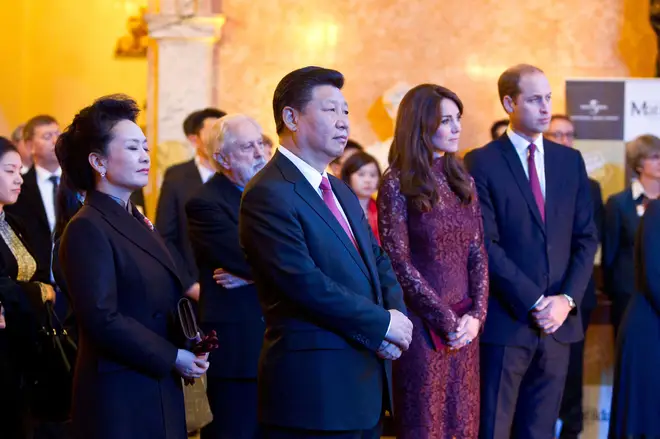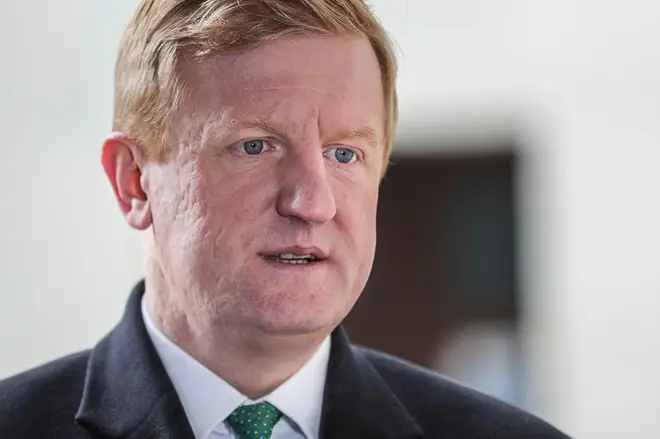
Oli Dugmore 4am - 7am
25 March 2024, 07:06 | Updated: 25 March 2024, 12:23

The UK will unveil sanctions against individuals thought to be linked to the cyberattacks on the Electoral Commission which saw the personal details of millions accessed.
Ministers will step up pressure on Beijing today as they are set to look at sanctioning individuals thought to be connected to alleged attacks on the Electoral Commission.
The attacks potentially saw the personal details of about 40 million voters accessed in August 2021, as well as 43 other individuals including MPs and peers.
In a further sign of hostile states trying to destabilise Britain - China, Russia and Iran are thought to be behind a wave of online conspiracies about the Princess of Wales.

'We'll stop at nothing to ensure our way of life is defended' says Andrew Bowie
Senior government figures believe hostile states have spread wild conspiracy theories and online rumours about Princess Kate's health and whereabouts following her absence from the public eye since Christmas.
Kate quashed any rumours or speculation Friday night as he announced her cancer diagnosis and the "huge shock"

following her abdominal surgery in January.
Both Prime Minister Rishi Sunak and Labour leader Keir Starmer led condemnation of "lurid speculation" about Kate and the "intense scrutiny" she was subject to on social media.

Addressing the Chinese threat On a visit to Barrow today Mr Sunak said: "We've been very clear that the situation now is that China is behaving in an increasingly assertive way abroad, authoritarian at home and it represents an epoch-defining challenge, and also the greatest state-based threat to our economic security.
"So, it's right that we take measures to protect ourselves, which is what we are doing."
Whitehall sources now believe hostile state actors have been involved in the social media attacks on Kate to try and destabilise the country, according to The Telegraph.
“Part of the modus operandi of hostile states is to destabilise things – whether that is undermining the legitimacy of our elections or other institutions,” a senior government source told the paper.
Kate spoke publicly on Friday about the "huge shock" of finding out she had cancer following abdominal surgery in January earlier this year. The princess explained she was now undergoing preventive chemotherapy.

Buckingham Palace revealed last month that the King was also having treatment for "a form of cancer". Neither Royals have released their specific form of the disease.
Ahead of the video's release Friday night, Kate met with the King for lunch shortly after filming the announcement. He told the princess that he expected the public would offer heartwarming support, The Times reported.
A Palace insider has told the paper that her decision to record the announcement and release details of her treatment was after seeing the reaction to the King's own announcement.
“A factor in their decision to go public would have been the great warmth and affection received by the King as a result of his announcement. It meant a huge amount to him," the paper reported the source as saying.
“In some ways it provided a template," they added.
The Electoral Commission acknowledged cyber attacks last August, saying unspecified “hostile actors” had gained access to copies of electoral registers and broken into its emails and “control systems”.
It added that this had no impact on elections or anyone’s registration status.
Deputy Prime Minister Oliver Dowden is expected to tell Parliament on Monday that those behind the wave of cyberattacks had links to Beijing.

MPs thought to have been targeted in the attacks include former Tory leader Sir Iain Duncan Smith, former minister Tim Loughton, cross bench peer Lord Alton and SNP MP Stewart McDonald and were reportedly called to a briefing over the activity.
They are members of the Inter-Parliamentary Alliance on China (IPAC) pressure group, which scrutinises the activity of Beijing.
Luke de Pulford, executive director of IPAC, told the Times: “About a year ago the Belgian and French foreign ministries publicly confirmed [Chinese state] sponsored cyberattacks against our members. Other countries have done the same privately. Beijing has made no secret of their desire to attack foreign politicians who dare to stand up to them.”
Some of those affected are understood to be preparing to jointly address the matter publicly on Monday.
In July, the Commons intelligence and security committee (ISC) released a report claiming China was “prolifically and aggressively” targeting the UK but government departments lacked the “resources, expertise or knowledge” to tackle the threat.
It also said Beijing had managed to “successfully penetrate every sector of the UK’s economy”.
A Government spokeswoman refused to comment on Sunday.
Meanwhile, reforms of UK spying laws continue to make their way through Parliament, with the Investigatory Powers (Amendment) Bill also set to appear in the Commons on Monday.
It comes amid rising concerns within the UK government over Chinese espionage and parliamentary interference.
In September 2023, a parliamentary researcher was arrested under the Official Secrets Act accused of spying for China.
China has denied accusations of espionage and wrongdoing.